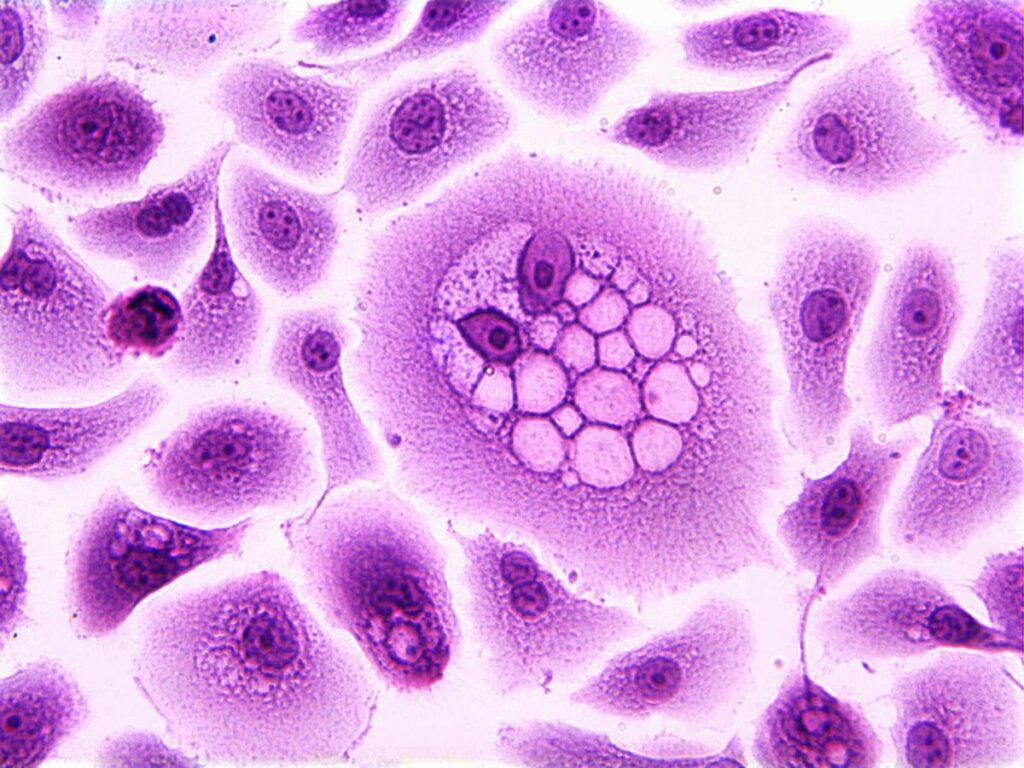Summary:
- Symptoms: Painless swelling in lymph nodes (neck, armpits, groin), fever, night sweats, weight loss (over 10% in 6 months), fatigue.
- Causes: Gene changes, particularly in chromosomes controlling cell growth; exact causes are unclear, possibly involving immune function.
- Affected Population: 3.5 per 100,000, mostly over 65 and more common in males.
- Treatment: Options include watchful waiting, radiation therapy, chemotherapy; each has potential side effects like fatigue, nausea, hair loss.
- Prognosis: Slow-growing; many live over 20 years, with a 90% five-year survival rate.
- Living with Lymphoma: Balanced diet, exercise, regular check-ups, emotional support is vital.
Ever felt unexplained lumps or fatigue that won’t quit? These could be signs of follicular lymphoma. This is a type of cancer that often stays hidden until it causes trouble. I’m here to dive deep into its symptoms, why it happens, and who it affects. Learn how to spot early signs and understand the risks. Let’s uncover the facts you need to know to stay informed and aware.
What Are the Symptoms and Causes of Follicular Lymphoma?
What are the signs and symptoms of follicular lymphoma?
Follicular lymphoma often begins with painless swelling. Swelling can appear in the neck, armpits, or groin. Some people might have additional signs like fever and night sweats. More uncommon symptoms include weight loss and constant tiredness. Night sweats are so intense they soak your bed sheets. Weight loss can mean losing more than 10% of weight in 6 months. Each symptom can feel confusing and alarming. They happen because of the growing lymphoma cells.
What causes follicular lymphoma?
Finding the cause of follicular lymphoma can be tricky. Most cases stem from changes in genes. Specifically, a change in a chromosome that controls cell growth is often involved. This change causes unchecked growth of cells. But why does this change happen? Experts still don’t know for sure. Some believe the body’s defenses might play a part.
Who is affected by follicular lymphoma?
Follicular lymphoma picks its victims carefully. About 3.5 per 100,000 people get it. People older than 65 are often affected. It is also more common in those assigned male at birth. No special warning signs exist for this illness. If concerned about your risk, talk with a doctor. They will give you trusted advice.
What are the symptoms of follicular lymphoma?
Follicular lymphoma has several common symptoms. You might notice painless lumps in your neck, armpits, or groin. These lumps are swollen lymph nodes. Catching them early helps in finding treatment sooner. You might also have unexplained fevers. These can happen regularly or off and on. Some people experience weight loss without trying, often more than 10% over six months. Weight loss can signal many health issues. It’s important to see a doctor if this happens. Night sweats that leave your pajamas or sheets soaked are another symptom. This can disturb sleep and is common with some cancers. Fatigue is a big complaint, too. This kind of tiredness doesn’t go away with rest. Living with these symptoms is tough, and I recommend talking openly with your doctor if you notice any. For more detailed information, the Cleveland Clinic is a trusted source to consult. Understanding symptoms early can lead to better management of follicular lymphoma.
What Are the Treatment Options for Follicular Lymphoma?
Healthcare providers use several methods to treat follicular lymphoma. The treatment choice depends on how advanced the cancer is and the patient’s needs. Some may choose watchful waiting if symptoms aren’t severe. Others might need treatments like radiation therapy, which uses high-energy rays to target cancer cells.
Chemotherapy plays a big role in treating follicular lymphoma. This involves drugs that kill fast-growing cells, such as cancer cells. There are several regimens, each with its unique way of working. The goal is to shrink tumors and slow the disease’s spread.
However, every treatment has side effects. Some people experience tiredness, nausea, or hair loss. Others face more serious issues like infections or heart problems. It’s crucial to talk with doctors about these risks and manage them with care. Understanding how treatments affect you will help in making informed decisions and improving your quality of life.
What Is the Prognosis and How to Live with Follicular Lymphoma?
How long can you live with follicular lymphoma? Many with follicular lymphoma, a slow-growing cancer, live over 20 years. The survival rate is about 90% at five years. It can turn chronic, but it’s not always life-threatening right away. It’s common for older adults and affects men more than women. Treatment helps control symptoms and improves life quality.
How do I take care of myself? Eating well and staying active are key to feeling better. Try to have a balanced diet with fruits, vegetables, proteins, and whole grains. Exercise helps boost energy and combat fatigue. It’s okay to rest when needed but try to move a little each day. Regular check-ups are crucial to keep an eye on your progress.
Emotional aspects of living with lymphoma can be tough. It’s normal to feel worried or sad. Speaking with a counselor or joining support groups can help. Sharing feelings with friends or family is important too. Remember, emotional health is part of overall well-being. Being informed and getting support can make a big difference in handling this journey.
Conclusion
Follicular lymphoma’s symptoms can be varied, from tiredness to swollen nodes. It’s crucial to understand the genetic causes and how the disease impacts different people. Diagnosis involves tests like biopsies and imaging to understand the lymphoma’s stage. Treatment includes chemotherapy and radiation but comes with side effects. Living with the disease means learning to cope and seeking emotional support. Facing follicular lymphoma is tough, but understanding and dealing with its aspects helps. Knowledge and preparation make all the difference in managing this condition.








